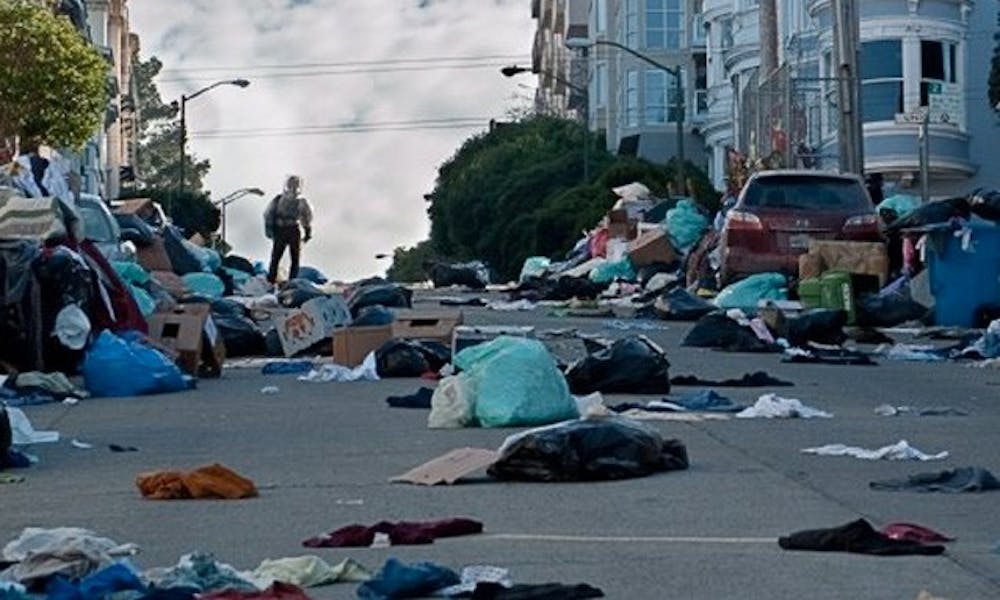After Gwyneth Paltrow, an Academy Award winning actress who has starred in over 40 films, is killed off by a mysterious virus in the opening minutes of Contagion, it becomes clear that the film is not just another biological disaster movie. From the beginning, Contagion sets forth a dark atmosphere and abruptly—yet artistically—introduces the motif of the swift finality of death.
Suddenly, numerous characters emerge: among them, an anti-government journalist (Jude Law), a doctor from the Centers for Disease Control and Prevention (Lawrence Fishburne) and an Epidemic Intelligence Service officer working with the infected (Kate Winslet). Each receives only a limited amount of screen time and, for a while, the death toll increases exponentially as the movie unfolds like a prequel to I Am Legend. Upon discovery of a supposed cure, however, Contagion shifts from a display of deadly epidemic to an exploration of a society’s deterioration through fear and rumor-mongering. Compassion and understanding fall to anarchy and desperation, as pharmacies are robbed and people are murdered in the hunt for the “magic drug.”
Unfortunately, though, the film’s effort to take on the decomposition of society—as well as human nature itself—is harmed by the flatness of its many characters. It’s not that the acting isn’t noteworthy—it is—but rather that the actors themselves have little to work with: instead of pitying the deaths of Contagion’s characters, the audience is left pitying the theft of its characters’ development. As a result, the motif of quick, unforgiving death unwittingly detracts from the movie. Furthermore, meditations on nepotism and hypocrisy, as well as hidden character pasts, end up feeling neither unexpected nor interesting. For a time, Damon’s character seems like an antidote to this. He struggles with issues of fidelity, loss and societal collapse on a large scale, despite his immunity to the MEV-1 virus. But the depth of the character, even in conjunction with Damon’s stellar performance, is not enough. He remains stranded on the periphery of the plotline, and none of the more pertinent characters demonstrate any comparable level of development.
In the end, Contagion is too crowded. It strives to examine the intricacies of the human condition, but its characters are simply too numerous to cultivate any true sense of complexity. Contagion unfolds evenly and with sound acting, but it fails to leave the lasting impact at which it hints.
Get The Chronicle straight to your inbox
Signup for our weekly newsletter. Cancel at any time.

